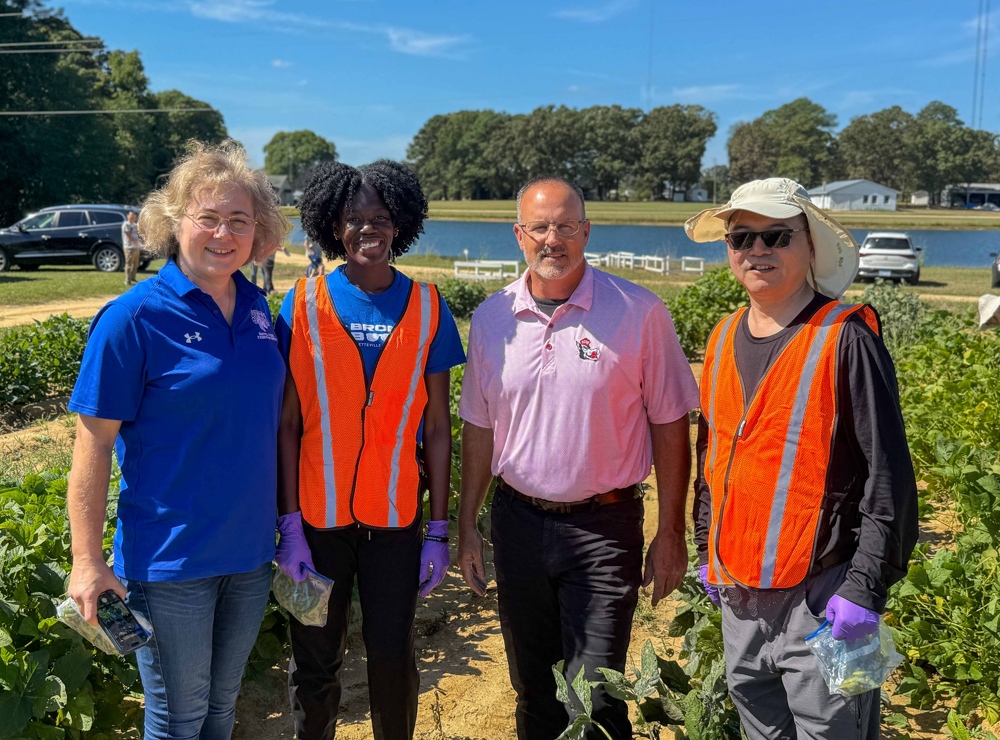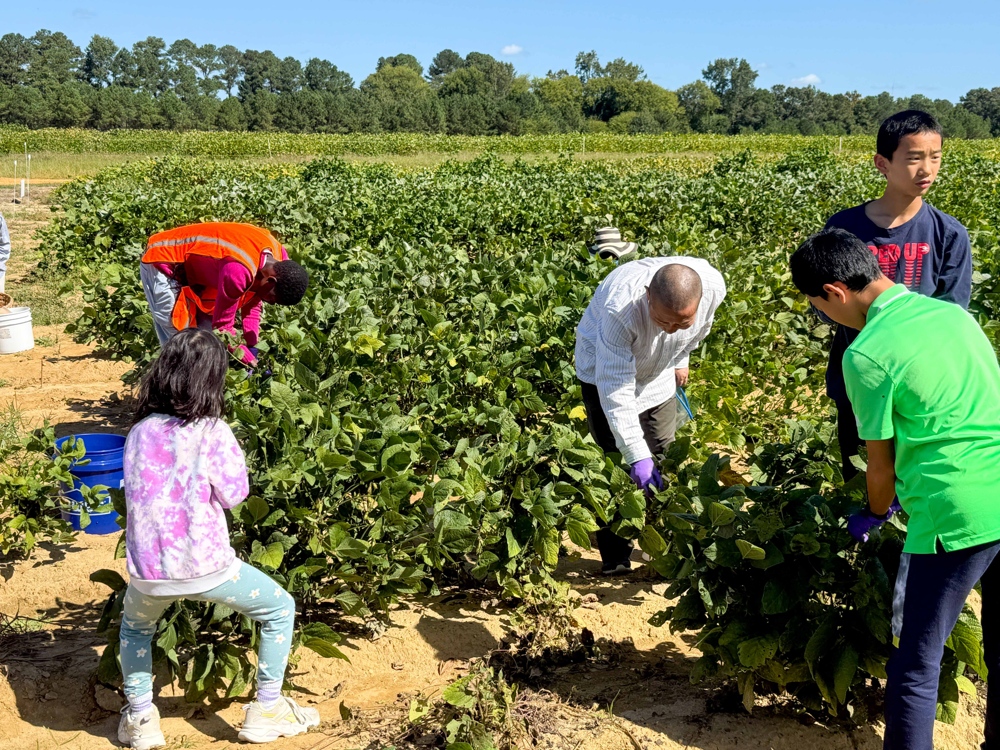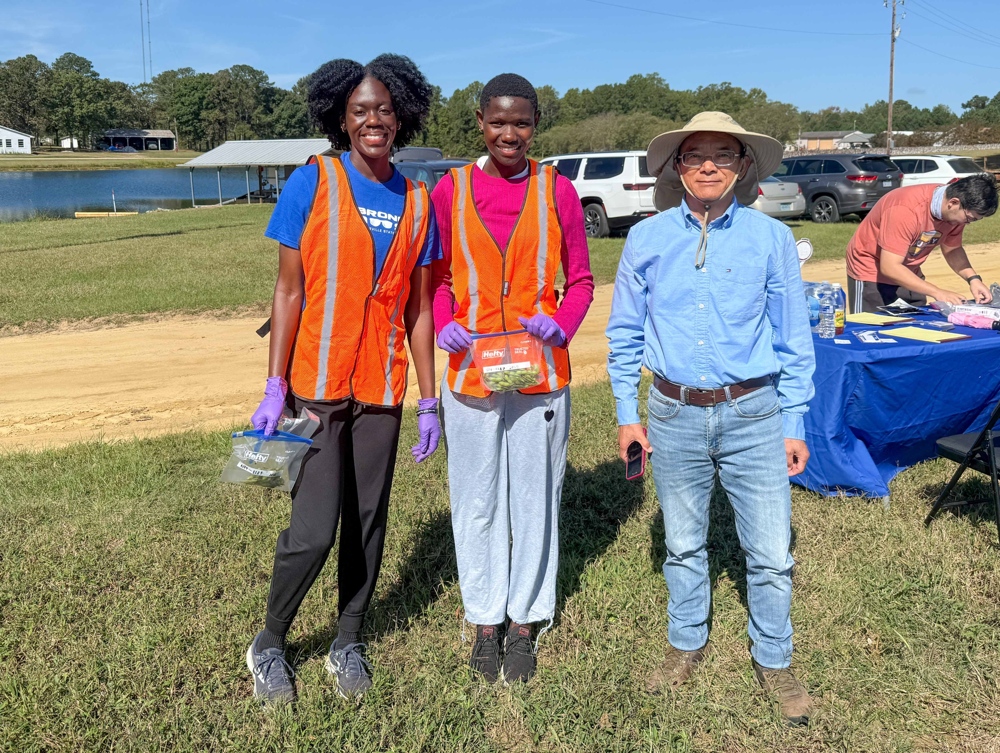Agricultural Discovery Has a New Address in North Carolina – In Bronco Country
Fayetteville State’s faculty and students are expanding their reach into agricultural science through hands-on research and community partnerships.

FAYETTEVILLE, N.C. - November may mark the end of the edamame season in North Carolina, but at Fayetteville State University’s Lloyd College of Health, Science, and Technology, it also marks the beginning of a new chapter in agricultural research. Although not a traditional agriculture program, Lloyd College is establishing a noteworthy presence in North Carolina’s agricultural landscape by integrating studies, student engagement, and community partnerships to drive advancement in key areas.
This progress is driven by faculty members who lead pioneering projects in sustainable agriculture. Students play a central role in these initiatives, gaining practical experience that prepares them to address real-world challenges in farming.
Fayetteville State professors showcased their expertise during the second annual Edamame Field Picking Day in October, which brought over 50 participants from southeastern North Carolina to the Central Crops Research Station in Clayton, a facility operated by North Carolina State University and the North Carolina Department of Agriculture and Consumer Services. The event provided attendees with direct insight into the science of food production and agriculture.
“Edamame Picking Day represents far more than the harvest itself,” said Jiazheng "John" Yuan, Ph.D., interim chair of FSU’s Department of Biological and Forensic Sciences, who organized the event. “Our goal is to bridge the gap between scientific research and the broader community by making science both tangible and accessible. When participants witness firsthand how research connects to the food they consume, it promotes intellectual curiosity, a sense of stewardship, and collective responsibility. Ultimately, we hope everyone recognizes their role in advancing the future of agriculture.”
Yuan designed the day’s activities to reflect his ongoing research in soybean genetics and nutrition—work supported by the National Science Foundation and North Carolina Collaborative Seed Grant—to engage both newcomers and returning visitors.

For Faith Kiplimo, a freshman nursing major and first-time participant, the event provided a unique and valuable experience. “It was exciting to see how teamwork and hands-on learning connect research to real-world applications,” she said.
Field demonstrations by Yuan’s partners, Ben Fallen, Ph.D., a research geneticist with the U.S. Department of Agriculture's Agricultural Research Service, and Guo-Liang Jiang, Ph.D., a soybean geneticist and assistant professor at Virginia State University, further reinforced the integration of educational outreach and scientific inquiry. Their presentations on advanced edamame breeding lines and methods for improving local varieties gave attendees direct exposure to current advances in crop science.
The event also featured Shirley Chao, Ph.D., professor of biology at FSU, who led participants in collecting kudzu bugs, an invasive pest that poses a significant threat to soybean production in the South. Her $1.1 million project, funded by NCInnovation, is focused on developing a hemp-derived bio-pesticide to reduce chemical use in crop management.
This all-inclusive experience left a strong impression on partakers such as Sheree Wright, a senior majoring in biology with a concentration in biotechnology and molecular biology, who valued the opportunity to engage with multiple facets of modern agriculture.
“Usually, it would be Dr. Yuan and a few of us harvesting for research, but I loved seeing everyone come out to pick and try the edamame,” she said. “Some of us were not only interested in the edamame but also in the bugs and other insects around the fields. It was a great day with good vibes all around!”
As the harvest draws to a close, the message is clear. Progress doesn’t always begin in large research centers or expansive fields. Sometimes, it starts with a few rows of edamame and a group of people curious enough to learn together. Fayetteville State University’s ongoing work in crop science and sustainability continues to develop from these experiences, demonstrating that meaningful discovery can occur in any setting.

